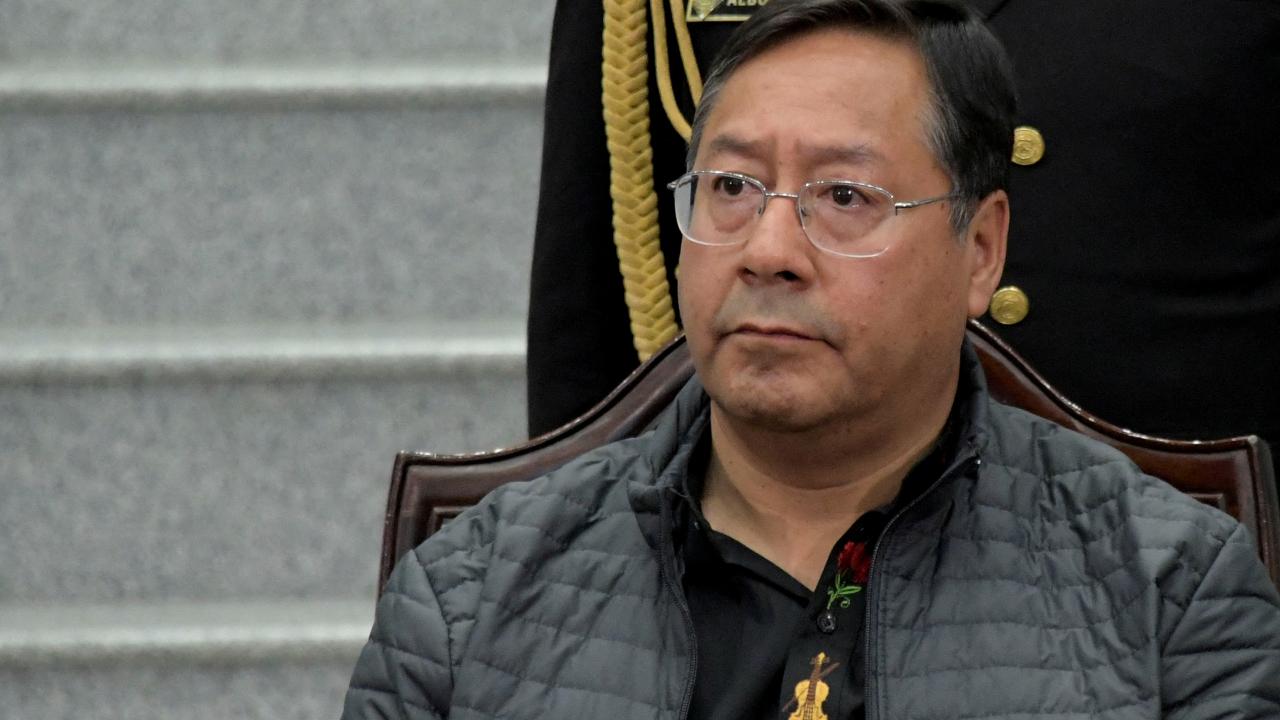
La Paz's affiliation to the most important economic bloc in South America is clouded by the high costs that imports from other continents would have and an uncompetitive productive sector that would be overshadowed by its giant neighbors.
On Wednesday of last week, the world's news programs focused their attention on Bolivia, due to a surprising coup attempt. Despite its imminent failure, the uprising revealed a political instability that has germinated in recent months, fueled by the internal division of the Movement towards Socialism (MAS), the ruling party.
This is a crisis that adds to other problems, such as the shortage of dollars, low income from exports and, therefore, the rise in the cost of living. In this scenario, the government of Luis Arce today made official the affiliation of Bolivia to Mercosur, the economic bloc originally made up of Argentina, Brazil, Paraguay and Uruguay.
In November 2023, an important step was taken after the Brazilian Senate approved the Draft Decree for Bolivia's accession to the organization. It was the last obstacle that remained for the highland country externally to complete the process.
In parallel and after a debate that lasted for months in both legislative chambers, the Bolivian Senate finally approved the accession this Wednesday, July 3. Finally, it is expected that this Monday the 8th, during the summit of Mercosur presidents, Bolivia will formally present the official accession protocol.
It should be noted that the economic bloc imposes conditions, such as the free movement of citizens between member countries, as well as the establishment of a Common External Tariff (CET) for imports from third countries. In that sense, Bolivia, due to its condition as a landlocked country, depends on negotiations with its neighboring countries to boost its exports.
In fact, the idea of a Mercosur affiliation dates back to the pre-MAS era. "It is not a position of the current government, at the time, former president Gonzalo Sánchez de Lozada opened the way for entry to Mercosur, at that time many business and political sectors agreed that he was going to limit the agreement we have with the countries of the Andean Community, with which we have valuable tariff preferences and a long-standing trade relationship,” explained Oswaldo Barriga, president of the Santa Cruz Chamber of Exporters , to AméricaEconomía .
Later, in 2006, the new socialist president Evo Morales signed the accession protocol for the first time. At that time, the ideological coincidences between Bolivia and its neighbors seemed to ensure its incorporation. However, the Congress of Paraguay refused to ratify this motion and discussions cooled in the following years, with modest progress.
But today, there are also more motivations to appeal to Mercosur. For Antonio Saravia, economist based in the US and presidential candidate for the Bolivian Liberal Party , in a context of economic crisis, the Arce government seeks to gain popular favor with attractive speeches such as “regional integration.”
“They want to show people that they have some kind of rationality and make an effort to integrate into the region. Furthermore, free trade agreements have a very good reputation. When many people hear about these, they get excited, because they believe that their products will be sold in other countries and in the case of Mercosur, that they will be able to transit freely through the members of the regional bloc,” Saravia declared to AméricaEconomía .
On the other hand, José Gabriel Espinoza, former director of the Central Bank of Bolivia , minimizes Arce's responsibility in the admission procedures. “In general terms, the president has not promoted integration, but has inherited the work.
Currently, it is more or less following the guidelines of Brazil, especially based on the approval that this country gave us last year,” explained the economist. However, Espinoza recognizes that in recent years, the Bolivian government has acted with greater pragmatism, as it now accepts integrating organizations with countries not aligned to the regional left.
BRAZIL'S INTEREST IN BOLIVIA'S MEMBERSHIP
It is striking that in neighboring Brazil, Bolivia's accession gained followers among the left and right of the South American giant. This would not be a coincidence: according to Saravia, the imposition of the CET is one of the main reasons for the support.
From now on, if Bolivia wishes to import raw materials or manufactures from the United States, China or other countries outside Mercosur, it will have to pay a tariff that fluctuates between 11.5 and 12% on average. But there are even products that have common tariffs of 35%.
“For example, the goods that have the most tariffs are cars and meat and food products, so if Argentina wants to import Chinese vehicles it must pay a very high tariff. So it is easier to buy the same car from Brazil, which is a member of the bloc,” says Saravia. From his perspective, therein lies the Brazilian interest in incorporating more countries into Mercosur: the increase in customer opportunities for its goods and manufactures. The economist believes that this scenario is negative for Bolivia, because it discourages the purchase of higher quality inputs to the detriment of those produced by neighboring countries.
Recently, the Bolivian Institute of Foreign Trade revealed that between 1997 and 2023, there was a deficit of US$ 42,000 million in the trade balance between Bolivia and Mercosur: that is, the highland country imports many more products than it sells to the economic bloc. .
In this regard, José Gabriel Espinoza maintains that this problem is due to the low productivity of the Bolivian economy in recent years. It is a trend that could be reversed with infrastructure projects, but also in human capital, as well as tax reforms that turn Bolivia into a country friendly to foreign investment.
In that sense, the current outlook is not very encouraging: in 2020, the Global Attraction Index positioned the highland country in position 116 in a ranking of 140 countries with the greatest attractiveness to attract investments. At the regional level, Bolivia only surpassed Venezuela (137th place) on the list.
“Bolivia's accession to Mercosur will not bring substantial diversification in the short term or the possibility of reversing a deficit as large as the one we have been dragging with the bloc. However, it opens the possibility of attracting new capital that accelerates this diversification,” adds Espinoza. In other words, Bolivian companies with “niche” products would be more likely to enter neighboring markets and develop supplier chains that would reduce the deficit with the rest of the bloc.
Regarding Brazil's interest in strengthening ties with Bolivia, Espinoza affirms that in the face of a hostile Argentina after the rise of Javier Milei, the giant seeks to strengthen its commercial ties with its other neighbors, with a view to projecting its trade to the Pacific coast. At the same time, there is interest in the Bolivian energy sector, although it faces a productive decline.
“Today, the Brazil-Bolivia relationship is mainly about energy. And perhaps we are probably beginning to see relationship intentions in other sectors such as mining or agribusiness,” says the former director of the Bolivian Central Bank.
Meanwhile, Oswaldo Barriga clarifies that the country's energy industry must set priorities to rebound. “Without Mercosur, the sale of natural gas to Brazil and Argentina was negotiated. Now that our reserves are low, Bolivia's priority is to reactivate the sector. Today we have a gas pipeline system that connects Brazil with Argentina, which is part of the Mercosur energy integration infrastructure,” says the head of the Santa Cruz Chamber of Exporters.
THE DRAMA OF Smuggling
On the other hand, in 2023, the Institute of Advanced Studies in Development (Inesad) and the Departmental Workers' Central of Bolivia (COD) estimated that 85% of the employed population works in the informal sector. These are figures that feed on a notable evil in the Bolivian economy: the excess of tax regulations that drives smuggling at the national level.
“If Bolivia enters Mercosur and wants to comply with the bloc's rules, it will have to militarize the borders. Because somehow you have to prevent these smuggled Chinese products from entering. And if that happens, the only thing we will achieve is double or triple prices for the poorest families in the country,” Saravia laments.
Likewise, the absence of an outlet to the sea would make imports even more expensive for Bolivia: Mercosur establishes that if a foreign good is re-exported from one member country to another, the common external tariff is paid again. This would be a mandatory action so that Bolivia can receive Chinese inputs that enter South America through Argentina, for example.
For Barriga, the Andean nation has a strategic location in the heart of South America, which gives it the potential to be an important “logistics node.” His position is justified by the presence of key projects such as a bi-oceanic highway corridor, a railway corridor in planning and the projected north-south integration of the nation, also by land.
“We are also part of the Paraguay - Paraná waterway, where commercial operations are carried out with the ports of the Atlantic and investments have been made by the private sector to have a port infrastructure, which also constitutes an integrating axis at the regional level” clarifies Barriga. However, the businessman regrets that this integration is constantly threatened by road blockades, the result of social protests by different unions against the Arce government.










